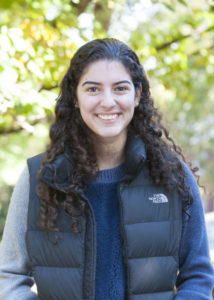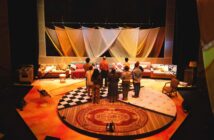
Isabel Portnoi
My first childhood memories take place in my kindergarten classroom. I remember sitting on the rug, as my teacher read a story from her big, wooden rocking chair. My eyes stayed locked on the colorful pages of the picture book, inching closer with every page, every sentence, every word.
When it came time to writing my own stories, I could not have been more excited. Stories about my own life quickly transformed to stories about made up universes with magical animals and children who could fly.
When writing time was over, I barely had a chance to be disappointed before the next lesson began. We were learning about math, specifically number 100. My classmates and I each spent the past 100 days finding 100 of an object — I chose bottle caps.
I presented my 100 bottle caps to “100-man,” our class superhero. He showed me how to organize the caps in 10 rows of 10, creating a perfect square.
I looked up at him with the same fascination that I did with the picture book — the same way my entire class did whenever we learned something new.
Fourteen years later, I try to pinpoint where exactly my innocent wonder was replaced with stress, my curiosity replaced with anxiety. I now refer to the time where my education was driven solely by wanting to learn about the world around me in the past tense. Much of my drive now is to see an A scribbled on the front page of my exams.
I often spend days studying for an exam and walk into the test confident that I am ready, only to receive a sub-par grade. Despite my strong work ethic and newly ingrained knowledge, I label this event as a failure.
Other times, I cram for tests, only studying the night before. Somehow, my sleep-deprived brain pulls off an A, only to forget the information as I leave the room. This is deemed as a success.
Learning can be, and should be, a beautiful thing. It has the possibility to spark flames. It has the potential to create fires. But often, these flames never come to life, as students are too afraid of being wrong.
All of the greatest scholars, inventors and thinkers are wrong infinitely more times than they are right. But our current education system makes students too nervous to try new things. This fear of being wrong and fear of bad grades leaves us paralyzed.
While I understand tests as a way to assess our knowledge, I cannot help but be jealous of my past self.
In fourth grade, we had a spelling test every Friday. I believe that is when my test anxiety first began — my teacher would hand us each a marble notebook and my heart would pound, unsure if “immigrant” had one m or two.
One Friday, my teacher announced that we didn’t need the notebooks for our spelling tests anymore. Instead, we needed to clear our desks. He squirted a glob of shaving cream on each of our desks, instructing us to spread the shaving cream all over, using our fingers to spell the words.
In that moment, I was too excited to be nervous about the number of m’s in immigrant. I began looking forward to Fridays. It wasn’t until my teacher pointed it out that I noticed my spelling improved exponentially.
As a sophomore, my days of spelling tests are over. While having students do calculus on desks coated in shaving cream may not be the solution to current flaws in learning, infusing our education with excitement and creativity could be.
Isabel Portnoi, ’21, is an associate news editor for the Brown and White. She can be reached at [email protected].





Comment policy
Comments posted to The Brown and White website are reviewed by a moderator before being approved. Incendiary speech or harassing language, including comments targeted at individuals, may be deemed unacceptable and not published. Spam and other soliciting will also be declined.
The Brown and White also reserves the right to not publish entirely anonymous comments.